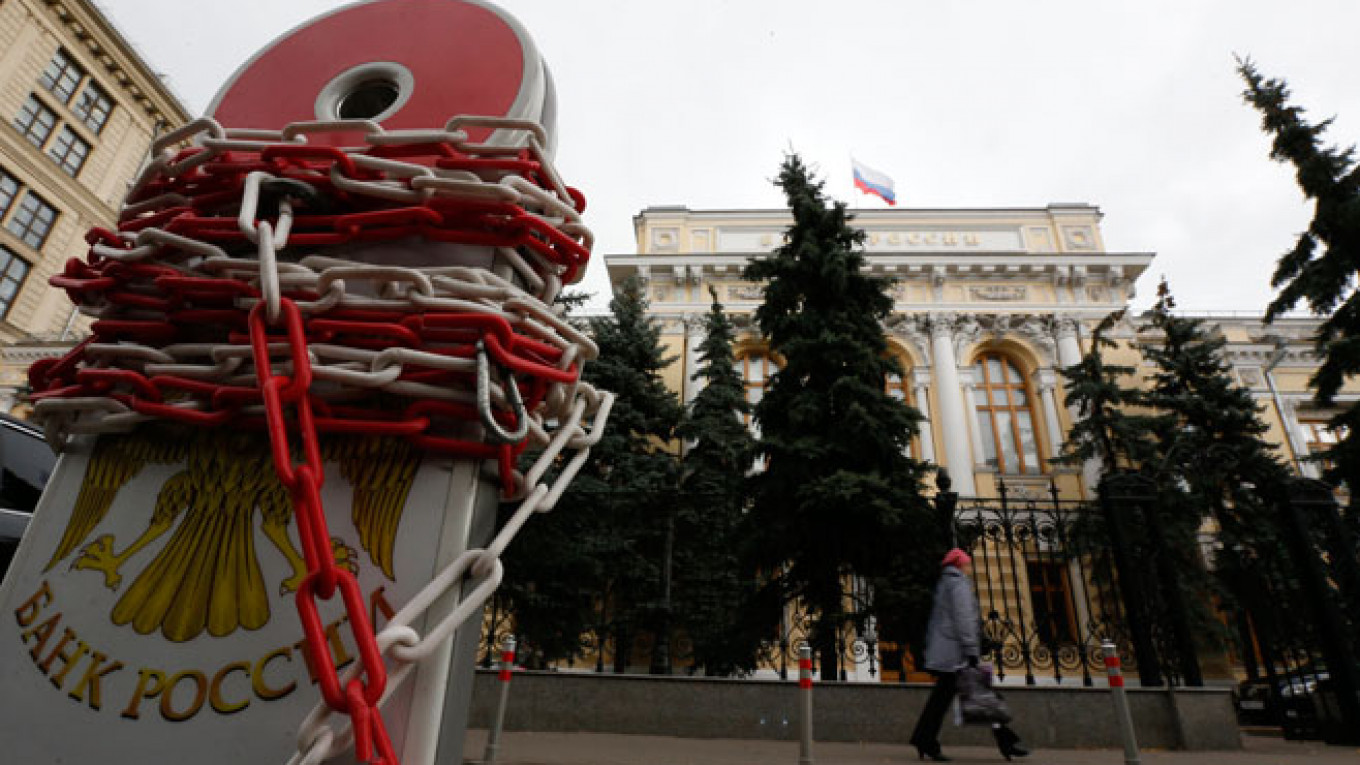The ruble has lost 10 percent of its value against the dollar in the last two months. The fall was caused by investors' growing pessimism as a protracted period of stagnation looms, by rising fears of inflation among businesses and citizens, and by a months-long decline in the price of oil — Russia's primary export.
In addition, banks and firms had to pay down a combined total of $20 billion in external dollar debt in September — much more than in the summer. And finally, the U.S. economy is growing steadily, making the dollar even more attractive.
Is a weakening ruble a good or a bad thing? On one hand, it is definitely bad. A cheaper ruble means consumers with a stable salary can buy fewer goods because prices are determined by the world market. ]Items don't need to have been imported for their prices to rise: It is enough if imported goods simply compete in that particular market segment to drive prices up.
Keep in mind that when prices go up for one item, demand for other items drops because less money for spending remains. Practically everyone suffers from a weaker ruble, but the poor are hardest hit because they must spend most of their money immediately on food.
But a weaker ruble also has a good side: firms, especially exporters earning dollars in payment for their goods, end up with more rubles to pay the same salaries. The national budget also benefits because it receives much of its revenues from exports.
However, the question of whether a weak ruble is good or bad is not the key issue of monetary policy.
The more important question is whether the Central Bank took the right action following the acute phase of the financial crisis of 2008-09 — a decision that was repeatedly confirmed thereafter — to reject a fixed value for the ruble and even the practice of "dirty floating" in which the Central Bank, without fixing a specific exchange rate, nevertheless manages changes in the exchange rate.
In recent years the Central Bank has not set the ruble's exchange rate, preferring to only dampen its fluctuations. For example, when citizens began dumping rubles in response to the events in Crimea in February and March, the Central Bank responded by flooding the market with enough dollars to smooth out the changes in the exchange rate without altering its overall course.
Starting in mid-August, the Central Bank allowed even wider latitude in those fluctuations, and as events in August and September have shown, that was exactly the right course of action.
Had it chosen to establish a fixed exchange rate, the deteriorating situation brought on by sanctions and the drop in oil prices would have forced the Central Bank to spend even more currency reserves to maintain it.
That, in turn, would have pushed up interest rates, as happened in the fall of 2008, and caused declines in production and employment. But thankfully the Central Bank has let the exchange rate change without interfering and has thereby avoided creating even more serious problems.
Konstantin Sonin, a columnist for Vedomosti, is professor of economics and vice rector at the Higher School of Economics in Moscow.
A Message from The Moscow Times:
Dear readers,
We are facing unprecedented challenges. Russia's Prosecutor General's Office has designated The Moscow Times as an "undesirable" organization, criminalizing our work and putting our staff at risk of prosecution. This follows our earlier unjust labeling as a "foreign agent."
These actions are direct attempts to silence independent journalism in Russia. The authorities claim our work "discredits the decisions of the Russian leadership." We see things differently: we strive to provide accurate, unbiased reporting on Russia.
We, the journalists of The Moscow Times, refuse to be silenced. But to continue our work, we need your help.
Your support, no matter how small, makes a world of difference. If you can, please support us monthly starting from just $2. It's quick to set up, and every contribution makes a significant impact.
By supporting The Moscow Times, you're defending open, independent journalism in the face of repression. Thank you for standing with us.
Remind me later.






